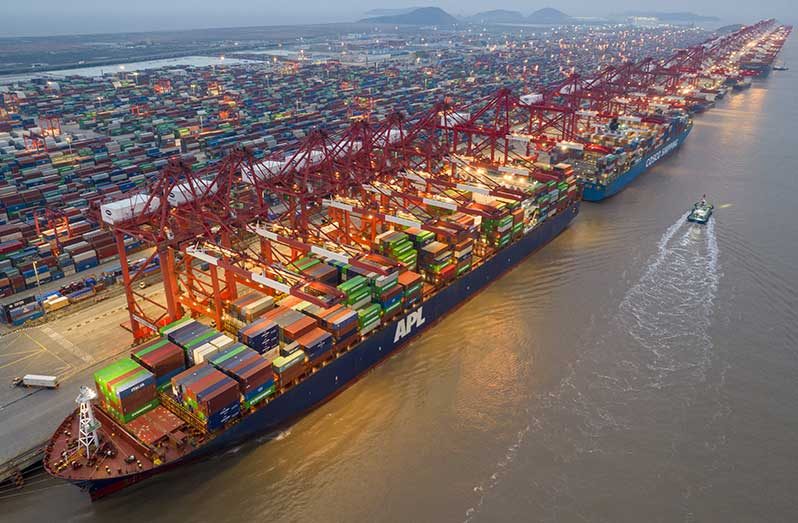–commits to engaging trade policy officials
UNITED States Secretary of State, Marco Rubio has committed to registering the Caribbean’s concern over his nation’s plans to impose fines on Chinese-made ships.
Speaking at a news briefing alongside Guyana’s President, Dr. Irfaan Ali at State House on Thursday, the US official said: “We’ve heard it throughout our visits here in the Caribbean, and we’re going to take it back and explain to those who are in
charge of trade policy that there are some implications to applying it to certain nations who are partners and who are seeking to develop their economies in ways that I think serve the national interest of the United States, not to mention the national interest of our partner nations, and see what can happen.”
Rubio, however, clarified: “So I can’t make a commitment to those exempt, because that’s not something we have in the Department of State. What I can commit to is that I will most certainly raise this issue as a recurring issue, in multiple places, that it would have a real detrimental effect on economic development.”
Ultimately, the way forward will depend on President Donald Trump’s decision.
“Maybe in 10 years, it won’t be an issue because there’s been some diversification, maybe in five but right now it would be problematic. That message I’ll take back to Washington and to my colleagues that are handling the trade portfolio, and we’ll see how the President decides to proceed. But rest assured we will take that message back.”
The US is proposing stacking fees on China-built vessels that could top $3 million per US port call.
According to a Tuesday news report from Reuters, US steelworker unions, US steel producers and Democratic lawmakers have thrown their support behind the move, as they believe it will facilitate a boost to the domestic industry. Concurrently, some believe the domestic maritime industry may be threatened.
Guyana’ President echoed Rubio’s statement, noting that he will take it back to see if there can be “special initiative” for the region given the Caribbean’s specific circumstances.



.jpg)










